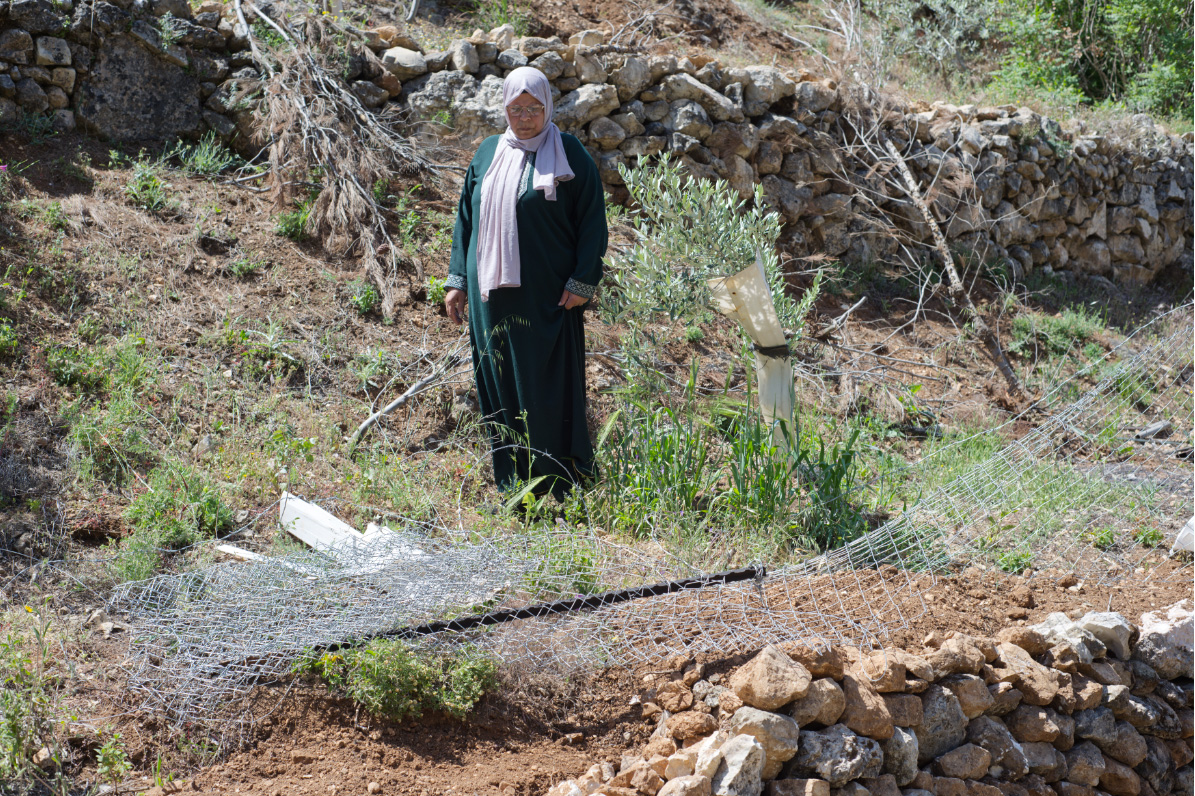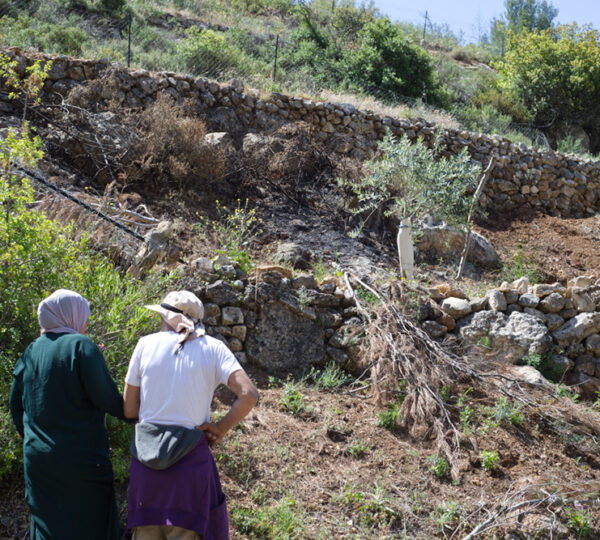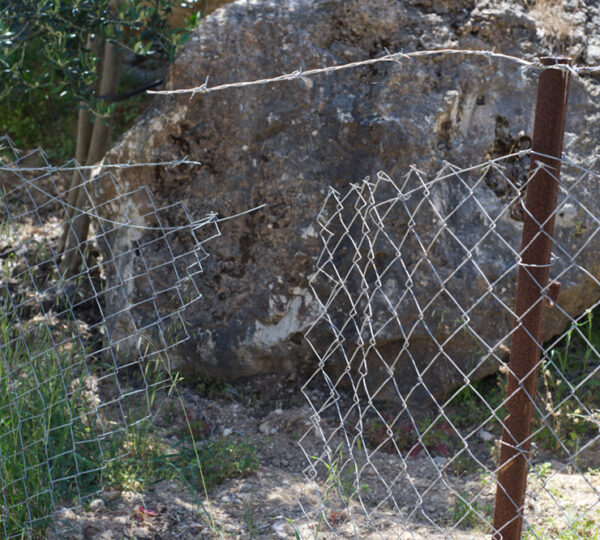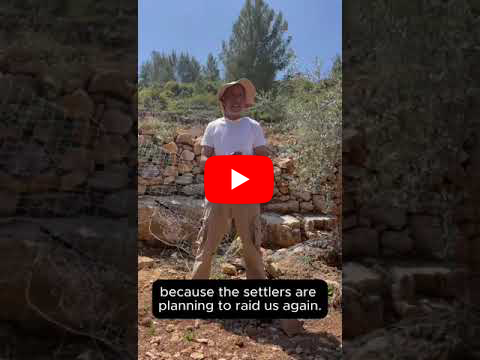Urgent Appeal for Al-Makhrour: Protecting Land, Culture, and Livelihoods

From the Fields of Al-Makhrour: A Call to Protect Land and Dignity
“In the face of destruction, our connection to the land is our strength. We will rebuild, we will remain, and we will defend what is ours.”
– Emad Al-Shami, Al-Makhrour resident

On the morning of April 23, 2025, a deeply disturbing scene awaited Al-Shami Family in the fertile lower reaches of Al-Makhrour Valley, near Ein Emdan Spring. Their ancestral olive grove—a seven-dunum plot—had been ravaged. Nearly 200 olive trees were uprooted or snapped, traditional stone terraces smashed, fencing torn apart, and vital solar panel wires destroyed. This attack by Israeli settlers was not an isolated act of vandalism. It was part of a sustained campaign of intimidation and destruction unfolding across one of the West Bank’s most cherished valleys.
Al-Makhrour is more than agricultural land. It is a cultural and ecological heritage site that has been cultivated and cared for by local Palestinian families for generations. But in recent years, the valley has become a hotspot for settler expansion, harassment, and violence—pressures that are pushing Palestinian landowners toward the brink.

The April 23 attack came after months of tension. Israeli settlers had previously grazed livestock on this same plot, prompting the Al-Shami family to install fencing in an attempt to protect the young olive trees. Video documentation from earlier incidents, including one on December 11, 2024, captures the vulnerability of these lands and their caretakers.
Unfortunately, this time, the destruction was total—and strategic. The trees were not just cut; they were broken in ways that prevent replanting. The terraces, which prevent soil erosion and support sustainable farming, were deliberately collapsed. The message was clear: you are not safe here.
But in the face of violence, the community has not been silent. Holy Land Trust, following its mission of nonviolent resistance and community empowerment, responded immediately. Within days, HLT staff visited the site, interviewed those affected, and began assessing the damages and needs. More than a response team, we came as allies—with listening ears, solidarity, and the commitment to help families reclaim their land and dignity.
This is not the first time families in Al-Makhrour have faced such aggression. Settlement plans like Nahal Heletz loom over the valley, backed by outposts that have already begun altering the landscape—both physically and psychologically. As this reality deepens, the role of institutions like HLT becomes more critical. We are committed to:
- Documenting and exposing acts of land destruction and settler violence.
- Providing moral, legal, and logistical support to families defending their land.
- Mobilizing local and international partners to stand in solidarity and provide practical aid.
- Promoting sustainable agriculture and cultural preservation through replanting and community protection initiatives.
But we cannot do this alone. We need you to act now—to share the story, to donate in support of our community empowerment work, and to help us carry out immediate land restoration. Your contribution will directly support sustainable agricultural projects such as greenhouses, irrigation systems, and solar panels, ensuring long-term resilience and hope for Al-Makhrour.
Emad Al-Shami’s words echo a shared determination:
“They want us to give up. We will not.”

Generation to Generation
7th Training Session
03.05.2025
Introduction to Feminism & Finalizing Spiritual Questionnaires
In the 7th Generation to Generation session held on Saturday, May 3rd, we introduced the concept of feminism to 17 female students from Bethlehem University. The students actively engaged in discussions on gender equality, women’s rights, and their role in shaping a more equitable society.
Additionally, the session marked the completion of the last 4 spiritual questionnaires, an integral part of the program designed to help the students reflect on their personal growth and emotional well-being. This collaboration, which aims to empower young women, provided them with the tools to process their experiences and build their inner strength for the future.

